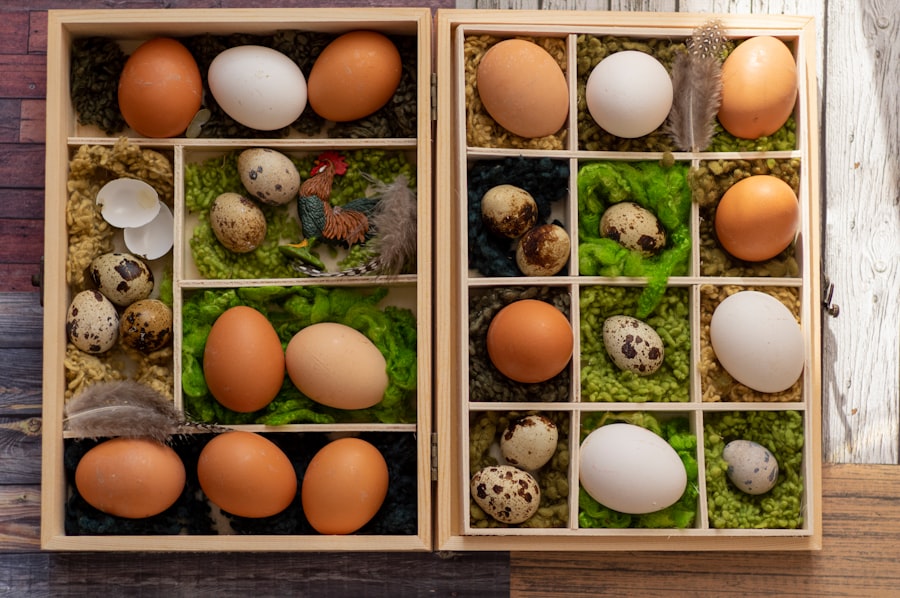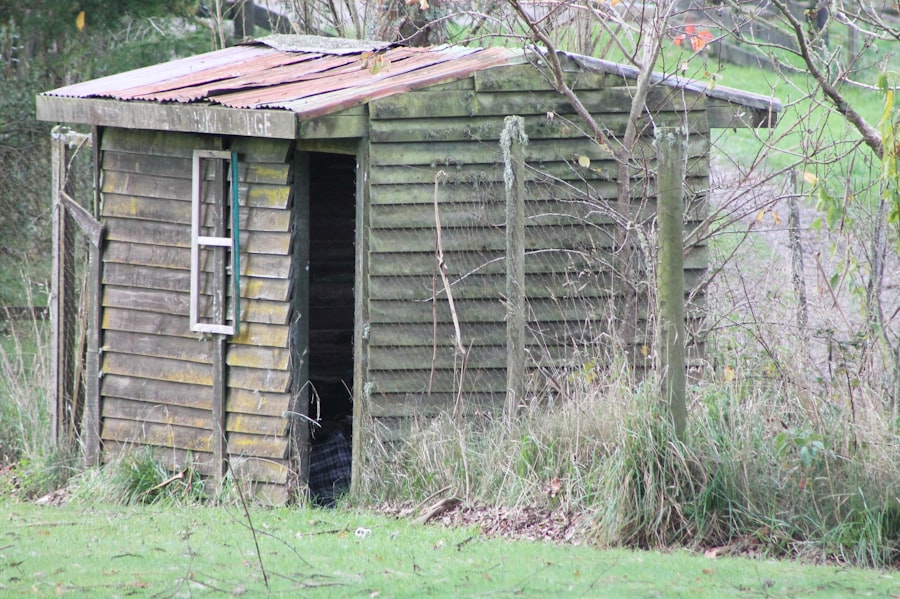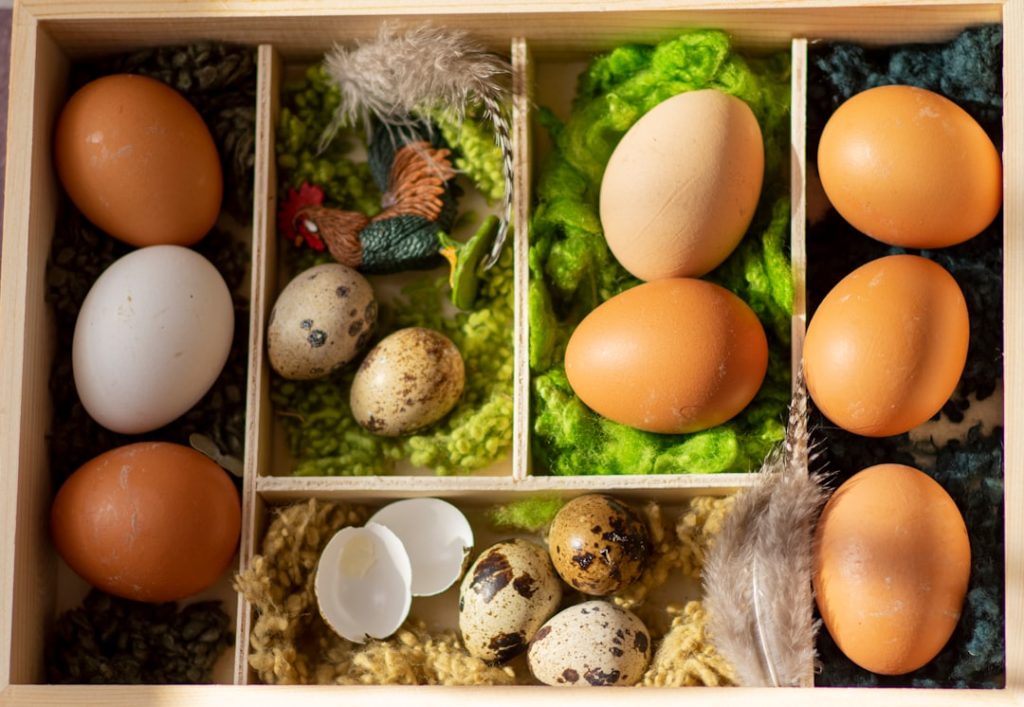Keeping chickens indoors is often necessary for several reasons. Primarily, it ensures their safety and protection from predators such as foxes, raccoons, and birds of prey, which can pose significant threats to chickens. Indoor housing also shields chickens from extreme weather conditions like heavy rain, snow, or intense heat, reducing the risk of illness and stress.
Indoor environments allow for greater control over the chickens’ diet and exposure to potentially harmful substances. This is particularly important for egg and meat production, as the chickens’ diet directly influences the quality of their products. Furthermore, indoor housing helps prevent the spread of diseases and parasites that can be transmitted by wild birds or other animals.
By providing a controlled environment, indoor housing enables chicken owners to maintain optimal conditions for their flock’s health and productivity. This approach can lead to healthier chickens with longer lifespans and improved overall well-being.
Table of Contents
- 1 Factors affecting the duration of indoor confinement for chickens
- 2 Health considerations for chickens when kept indoors
- 3 Providing enrichment and stimulation for indoor chickens
- 4 Transitioning chickens from indoor to outdoor living
- 5 Monitoring behavior and well-being of indoor chickens
- 6 Tips for maintaining a healthy and happy indoor chicken flock
- 7 FAQs
- 7.1 What is the recommended time for keeping chickens indoors?
- 7.2 Why do chickens need to be kept indoors for a certain period of time?
- 7.3 What are the benefits of keeping chickens indoors for a specific duration?
- 7.4 What factors should be considered when determining how long to keep chickens indoors?
- 7.5 How can I ensure that my chickens are ready to be let outdoors after being kept indoors?
Key Takeaways
- Keeping chickens indoors can be necessary to protect them from predators, extreme weather, and disease.
- Factors affecting the duration of indoor confinement for chickens include the size of the indoor space, the number of chickens, and the availability of enrichment activities.
- Health considerations for indoor chickens include providing proper ventilation, maintaining cleanliness, and monitoring for signs of stress or illness.
- Enrichment and stimulation for indoor chickens can be provided through toys, perches, and access to dust baths and foraging opportunities.
- Transitioning chickens from indoor to outdoor living should be done gradually to allow them to acclimate to the new environment and avoid stress.
- Monitoring the behavior and well-being of indoor chickens is important for identifying any issues and making necessary adjustments to their care.
- Tips for maintaining a healthy and happy indoor chicken flock include providing a balanced diet, regular health check-ups, and creating a comfortable and stimulating environment.
Factors affecting the duration of indoor confinement for chickens
Indoor Space and Enrichment
The size of the indoor space available for the chickens is a crucial factor. If the space is small and lacks enrichment, chickens may become stressed and exhibit negative behaviors such as feather pecking and aggression. In such cases, providing more space or outdoor access can help prevent these issues. On the other hand, a large and well-equipped indoor space with enrichment items like perches, dust baths, and toys can enable chickens to thrive indoors for longer periods.
The individual personalities and social dynamics of chickens also play a significant role in determining the duration of indoor confinement. Some chickens may be more adaptable to indoor living and may not mind being confined for longer periods, while others may become stressed and anxious without outdoor access. Moreover, social dynamics within the flock can impact their well-being indoors. If there is aggression or bullying within the flock, providing outdoor access can allow chickens to escape from these negative interactions.
Considering Individual Needs and Well-being
In conclusion, the duration of indoor confinement for chickens can be affected by a variety of factors. It is essential to consider each individual chicken’s needs and well-being to ensure their health and happiness. By providing a suitable environment and addressing their individual needs, chicken owners can help promote a positive and stress-free experience for their flock.
Health considerations for chickens when kept indoors

When keeping chickens indoors, it’s important to consider their health and well-being to ensure they thrive in their environment. One health consideration is providing proper ventilation to prevent respiratory issues. Poor ventilation can lead to a buildup of ammonia from droppings, which can cause respiratory problems in chickens.
It’s important to ensure that the indoor space is well-ventilated to provide fresh air and prevent the buildup of harmful gases. Another health consideration for indoor chickens is providing a balanced diet to meet their nutritional needs. Chickens require a diet that includes a mix of grains, protein, vitamins, and minerals to stay healthy.
When kept indoors, it’s important to provide access to high-quality feed and supplements to ensure they receive all the nutrients they need. Additionally, providing access to clean water at all times is crucial for their health and hydration. Furthermore, maintaining good hygiene in the indoor space is essential for preventing diseases and parasites.
Regularly cleaning the coop, changing bedding, and removing droppings can help prevent the spread of diseases and parasites that can thrive in dirty environments. It’s also important to monitor the chickens for any signs of illness or injury and provide prompt veterinary care when needed. Overall, considering the health needs of indoor chickens is crucial for maintaining a happy and thriving flock.
Providing enrichment and stimulation for indoor chickens
Providing enrichment and stimulation for indoor chickens is essential for their mental and physical well-being. One way to provide enrichment is by offering a variety of perches at different heights for the chickens to roost on. This allows them to exercise their natural instinct to perch and also provides them with different vantage points to observe their surroundings.
Additionally, providing dust baths filled with sand or diatomaceous earth allows chickens to engage in natural behaviors such as dust bathing, which helps keep their feathers clean and free from parasites. Another way to provide enrichment for indoor chickens is by offering toys and objects for them to peck at and explore. This can include hanging treats such as cabbage or lettuce from strings for them to peck at, or providing objects such as mirrors or shiny objects for them to investigate.
These types of enrichment activities can help prevent boredom and reduce negative behaviors such as feather pecking or aggression within the flock. Furthermore, providing access to natural light and visual stimulation is important for indoor chickens. Allowing natural light into the indoor space can help regulate their circadian rhythms and provide them with visual stimulation from observing their surroundings.
Additionally, playing calming music or providing visual stimuli such as colorful objects or natural scenery can help keep indoor chickens mentally stimulated and reduce stress. Overall, providing enrichment and stimulation for indoor chickens is crucial for their well-being and happiness.
Transitioning chickens from indoor to outdoor living
Transitioning chickens from indoor to outdoor living requires careful planning and consideration to ensure a smooth adjustment for the flock. One important factor to consider is the timing of the transition. It’s best to wait until the weather is mild and stable before allowing the chickens outdoor access, as extreme weather conditions can stress and harm them.
Additionally, it’s important to gradually introduce outdoor access by allowing supervised time in a secure outdoor area before giving them full access to free-range. Another consideration when transitioning chickens from indoor to outdoor living is predator-proofing the outdoor space. This includes securing fencing, covering any openings that predators could enter through, and providing shelter such as a coop or covered run for the chickens to retreat to if needed.
This helps protect them from potential threats such as foxes, raccoons, or birds of prey that may be present in the outdoor environment. Furthermore, providing access to natural elements such as grass, soil, and insects can help ease the transition for indoor chickens. Allowing them to peck at grass and scratch in soil provides them with natural enrichment and allows them to engage in natural behaviors such as foraging.
Additionally, providing access to fresh air and sunlight can help improve their overall well-being and health. Overall, transitioning chickens from indoor to outdoor living requires careful planning and consideration to ensure a successful adjustment for the flock.
Monitoring behavior and well-being of indoor chickens

Observing Flock Dynamics
One way to monitor their behavior is by observing their interactions within the flock. Paying attention to any signs of aggression, bullying, or stress within the flock can help identify any social dynamics that may need addressing.
Monitoring Health and Hydration
Monitoring their eating and drinking habits can help identify any potential health issues or changes in their behavior. Regularly checking their physical condition is also essential, including checking their feathers, skin, eyes, and overall body condition for any signs of illness or injury.
Tracking Egg Production and Activity Levels
Monitoring their egg production and quality can provide insight into their overall health and well-being. Furthermore, it’s important to observe their overall activity level and behavior patterns. Changes in their activity level or behavior such as lethargy, excessive vocalization, or abnormal movements can indicate potential health issues or stress.
It’s important to address any changes in behavior promptly by seeking veterinary care if needed. Overall, monitoring the behavior and well-being of indoor chickens is essential for maintaining a healthy and happy flock.
Tips for maintaining a healthy and happy indoor chicken flock
Maintaining a healthy and happy indoor chicken flock requires attention to various aspects of their care and well-being. One tip is to provide a clean and comfortable living environment by regularly cleaning the coop, changing bedding, and removing droppings. This helps prevent the spread of diseases and parasites that can thrive in dirty environments.
Another tip is to provide a balanced diet that meets their nutritional needs by offering high-quality feed, supplements, and access to clean water at all times. Additionally, providing access to natural light and visual stimulation can help keep indoor chickens mentally stimulated and reduce stress. Furthermore, providing enrichment items such as perches, dust baths, toys, and objects for them to peck at can help prevent boredom and reduce negative behaviors within the flock.
It’s also important to monitor their behavior and well-being regularly by observing their interactions within the flock, checking their physical condition, monitoring their egg production, and observing their overall activity level. Overall, maintaining a healthy and happy indoor chicken flock requires attention to their physical health, mental stimulation, social dynamics within the flock, and regular monitoring of their behavior and well-being.
If you’re wondering how long you need to keep your chickens indoors, you may also be interested in learning about how long it takes for chicken eggs to hatch naturally. This article on Poultry Wizard provides valuable information on the incubation period for chicken eggs and the natural hatching process.
FAQs
What is the recommended time for keeping chickens indoors?
The recommended time for keeping chickens indoors is typically around 6-8 weeks, or until they are fully feathered and able to regulate their own body temperature.
Why do chickens need to be kept indoors for a certain period of time?
Chickens need to be kept indoors for a certain period of time to protect them from predators, harsh weather conditions, and to ensure they are healthy and strong before being allowed to roam freely outside.
What are the benefits of keeping chickens indoors for a specific duration?
Keeping chickens indoors for a specific duration allows them to grow and develop in a controlled environment, reducing the risk of disease, injury, and stress. It also helps them acclimate to their surroundings and establish a sense of security.
What factors should be considered when determining how long to keep chickens indoors?
Factors to consider when determining how long to keep chickens indoors include the breed of the chickens, the climate and weather conditions, the availability of outdoor space, and the overall health and development of the chickens.
How can I ensure that my chickens are ready to be let outdoors after being kept indoors?
You can ensure that your chickens are ready to be let outdoors by observing their behavior, ensuring they are fully feathered, and gradually introducing them to the outdoor environment to minimize stress and potential health risks.
Meet Walter, the feathered-friend fanatic of Florida! Nestled in the sunshine state, Walter struts through life with his feathered companions, clucking his way to happiness. With a coop that’s fancier than a five-star hotel, he’s the Don Juan of the chicken world. When he’s not teaching his hens to do the cha-cha, you’ll find him in a heated debate with his prized rooster, Sir Clucks-a-Lot. Walter’s poultry passion is no yolk; he’s the sunny-side-up guy you never knew you needed in your flock of friends!







